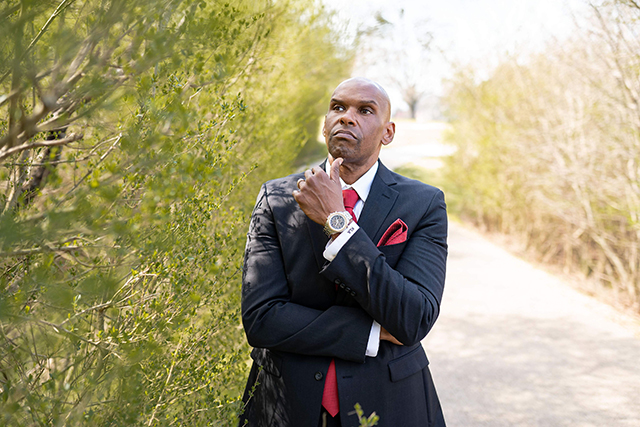Workplace stress is so common today that it’s been referred to as the “health epidemic of the 21st century” by the World Health Organization. It’s well known that stress has degenerative effects on our health and wellness. Stress is so prevalent that it costs American businesses some $300 billion a year. So how do you fight back against workplace stress to maintain productivity and progress in your career?
The answer lies in developing professional and personal resilience. Our always-on workplace cultures are not going to change anytime soon, so the onus is on you as a professional to adapt to your environment and build resilience so you can achieve what is most important to you. And because resilience is attached to a set of behaviors and skills, anyone willing to learn can learn to be more resilient.
Developing resilience is meant to combat or handle stress productively, which is directly connected to your emotional health. By fostering emotional intelligence with the following tips, you will be more resilient for your own mental health and clarity, as well as communicate more compassionately with those around you, making you a better team member.
Adopt a mindfulness practice
The ancient practice of mindfulness has been enjoying a mainstream spotlight for a few years now. The reasons why are evident in the positive benefits it brings with such a low point of entry for beginners. Simply find a quiet moment to yourself and focus on your breath to begin your journey of meditation mastery.
By simple repetition of focusing your attention on your breath, you train yourself to become more focused and aware of yourself and how you fit into the world around you. This helps combat stress because it gives clarity in emotional moments for you to respond productively, as opposed to negatively.
The clarity does more than combat stress. With a clearer mind, you become a better and more creative problem solver, a more interesting and engaged teammate, and increasingly flexible to the world around you. Meditation can be daunting for the uninitiated, but there’s tons of resources to interact with to find the best method for you.
Compartmentalize your workflow
Stress compounds when you feel overwhelmed and disorganized. That’s why making progress on important tasks is psychologically rewarding: you’re actively lifting worry from your brain. But in today’s increasingly fast and complex business world, narrowing down what is most critical can be difficult. Desperate to meet all your marks, you might flit from one task to another, never giving any project your fullest attention. This practice destroys productivity by some 40%, meaning it’s best to avoid switching gears so often.
Instead, you can purposefully plan your time so that you get the most out of your day, moment to moment. Block off time on your calendar dedicated to specific tasks, similar to how you make time for exercise. Lean in with your full focus on a singular item to improve your work product, combat stress, and build resilience.
This might sound overly regimented and strict for some, so play with it as it works best for you. For me personally, I find my favorite time to write is in the morning, but I also get a lot of requests across departments in the morning. Depending on my workload and schedule, I can adapt accordingly to best honor my commitments and deliver work products I can be proud of.

Take a load off
Just as you make dedicated time to focus on different tasks, you should take time away from the computer screen to refresh your outlook. By taking a break, you give yourself the chance to be more creative, focused, and excited about your work.
We all experience the ebb and flow of energy throughout the day, and it’s completely natural. Much as your circadian rhythm is your daily peak and valley of energy, your ultradian rhythm is your hourly rise and fall of focus and clarity.
For most people, these ultradian rhythms are between 90 and 120 minutes long. When compartmentalizing your workflow, try to plan around these time increments to take advantage of your energy. Set aside a few minutes in between each task to step away from your desk and refresh yourself. By doing so, you not only aid in your productivity day to day, but you create a healthy work routine and relationship with productivity that will decrease the risk of burnout over the course of weeks and months.
Improve your mental agility
Mindfulness meditation helps you better respond to the world around you instead of simply reacting to it. This is helpful when dealing with stress because it helps us make the best decisions, instead of purely emotional decisions. Mental agility works the same way in that we can train ourselves to take a step back from a trying situation, assess it, and then decide how best to move forward.
It’s important to note that this practice does not mean denying that you are stressed, or that the email you just got was frustrating. Instead, it’s the acknowledgement that your stressed and frustrated self doesn’t make the best decisions and therefore shouldn’t be the one deciding how you handle it. To improve mental agility, the next time you’re in a challenging situation, take a cognitive step back and assess the situation on its merits and not its feelings.
When we do this, we create response flexibility, and shift our thinking from the narrative network in our brains, to the more observational and problem-solving network of our brains. Unfortunately for most of us, our narrative networks are a bit too self-centered to be driving the bulk of our business decisions. But by taking a moment to label and assess the situation, we give ourselves, and our brains, the time to best process the current situation and how to proceed.

Grow your compassion
Compassionate behavior and business effectiveness are not mutually exclusive. The two actually go hand in hand, as a more compassionate approach improves collaboration, creates positive working relationships, and provides a more grounded approach to business.
By cultivating compassion, you decrease stress in addition to improving productivity, creating a more positive outlook, and developing healthy habits. And compassion isn’t just an improved understanding of others around you: it’s compassion for yourself as well.
An open and more compassionate mind will cut through the noise to keep you focused on what matters most. Just as with mental agility, compassion shuts off the narrative network of your brain to instead focus on the situation at hand for what it is.
Growing compassion is easier said than done. It’s best to focus on what you think needs it most: your interactions with yourself, or your interactions with others. Both approaches boil down to taking a deep breath and cutting yourself or others some slack and understanding. None of us is perfect, but as long as we are all trying to improve, we can work together to achieve common goals. Practice kindness to yourself and others and you will naturally decrease stress and strengthen your resilience.









